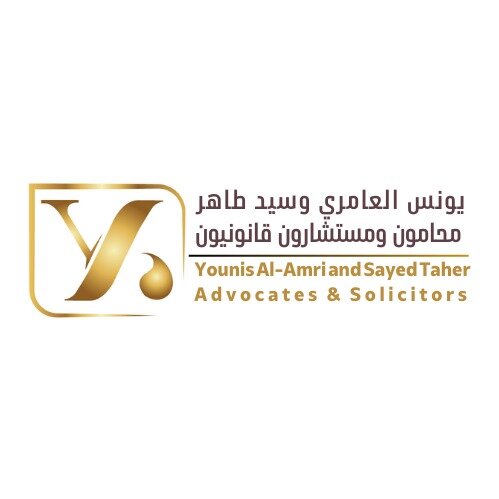Best Water Law Lawyers in Oman
Share your needs with us, get contacted by law firms.
Free. Takes 2 min.
Or refine your search by selecting a city:
List of the best lawyers in Oman
About Water Law in Oman
Water Law in Oman governs the rights, responsibilities, and use of water resources within the country. As a nation with limited natural freshwater and growing demand for water due to population growth and development, Oman's legal framework aims to manage, protect, and regulate water resources to ensure their sustainability and equitable distribution. The law dictates how water may be sourced, allocated, used, and protected, including the operation of wells, springs, water distribution networks, desalination plants, and wastewater treatment. Regulatory oversight is primarily the responsibility of the Ministry of Agricultural, Fisheries, and Water Resources, but other governmental bodies may also be involved depending on the context.
Why You May Need a Lawyer
Legal complications involving water in Oman can affect individuals, businesses, farmers, developers, and even local municipalities. You may need a lawyer specializing in Water Law for situations such as:
- Disputes over water rights between neighbors or among agricultural communities
- Obtaining licenses or permits for digging wells, building water infrastructure, or using large volumes of water
- Issues arising from misuse or pollution of water resources, such as liability for contaminated water
- Challenging government decisions related to water allocation or restriction
- Understanding regulations regarding desalination, irrigation, and industrial use of water
- Ensuring compliance with laws aimed at conservation and efficient use of water
- Advising on contractual arrangements involving water supply or water infrastructure projects
Local Laws Overview
Oman's Water Law framework is shaped by specific statutes, ministerial decisions, and traditional water allocation systems. Some key aspects include:
- Water Rights and Allocation: The law sets out how water resources are distributed among users, including domestic, agricultural, and industrial consumers. Traditional systems such as the falaj (ancient irrigation channels) are recognized and protected under Omani law.
- Licensing and Permits: Extraction of groundwater, construction of wells, or alteration of watercourses typically requires a license from the relevant authorities. Unauthorized drilling or use can result in fines or legal action.
- Water Quality and Pollution Control: There are strict regulations to prevent the pollution of water resources, including penalties for dumping waste or contaminants into water bodies.
- Desalination and Non-Traditional Water Sources: With increasing reliance on desalinated water, laws also cover the operation, safety, and regulation of desalination plants.
- Conservation Measures: Oman's legal framework encourages water conservation, efficiency, and the use of treated wastewater for irrigation and industrial use.
Frequently Asked Questions
What are the main sources of water regulated under Omani Water Law?
Omani Water Law covers all major natural and artificial sources, including groundwater, surface water (rivers, wadis), falaj systems, desalinated water, and treated wastewater.
Do I need a permit to dig a well on my property?
Yes, you must obtain a permit from the Ministry of Agricultural, Fisheries, and Water Resources before digging or modifying any well, regardless of depth or intended use.
What is a falaj and how is it protected under the law?
A falaj is a traditional irrigation channel, and Omani law recognizes its cultural and practical importance. There are regulations protecting falaj systems from unauthorized alteration or misuse.
Can water rights be transferred or sold?
Generally, water rights are regulated and cannot be freely traded or transferred except under specific conditions recognized by the law and with official approval.
What happens if someone pollutes a water source?
Causing pollution to a water source is a serious offense under Omani law and may lead to fines, criminal charges, or orders to remediate the damage.
Are desalination plants privately or publicly operated?
Both private and public entities may operate desalination plants, but all such facilities are subject to strict governmental regulation and licensing requirements.
How can disputes about water use between neighbors be resolved?
Disputes are initially addressed through mediation and local authorities, but may be escalated to formal courts. Legal representation is advisable for complex or high-value disputes.
What are the penalties for using water without authorization?
Unauthorized extraction or use of water can result in confiscation of equipment, fines, and possible criminal charges, depending on the scale and impact of the violation.
Are there specific rules for using treated wastewater?
Yes, the use of treated wastewater is permitted for certain non-potable purposes like irrigation and industrial processes, subject to compliance with health and safety standards set by law.
Who regulates and enforces Water Law in Oman?
Primary regulation and enforcement are managed by the Ministry of Agricultural, Fisheries, and Water Resources, often in coordination with local municipalities and environmental agencies.
Additional Resources
If you need further information or official guidance, the following resources and authorities can be helpful:
- Ministry of Agricultural, Fisheries, and Water Resources - Responsible for water policy, permits, and enforcement
- Oman Environmental Services Holding Company (be'ah) - Works on environmental protection including water conservation and pollution control
- Local municipalities - Often handle practical aspects of water distribution and allocation
- Legal aid centers - Can provide initial advice or referrals to specialist Water Law practitioners
- Libraries and academic institutions - Offer research and publications on Oman's water management practices and legal framework
Next Steps
If you require legal advice or assistance concerning Water Law in Oman, consider the following steps:
- Gather all relevant documents such as permits, contracts, or correspondence related to your water issue
- Identify the specific nature of your problem, whether it involves licensing, dispute resolution, regulatory compliance, or another area
- Contact a qualified lawyer with experience in Omani Water Law for a consultation
- Reach out to the appropriate government authority if the issue involves permits or regulatory approvals
- For urgent situations involving health or safety, contact your local municipality or environmental agency immediately
A specialist lawyer can help you navigate the regulatory landscape, represent your interests, and ensure compliance with Oman's complex Water Law system. Taking early and informed action is the best way to protect your rights and avoid potential legal or financial liability.
Lawzana helps you find the best lawyers and law firms in Oman through a curated and pre-screened list of qualified legal professionals. Our platform offers rankings and detailed profiles of attorneys and law firms, allowing you to compare based on practice areas, including Water Law, experience, and client feedback.
Each profile includes a description of the firm's areas of practice, client reviews, team members and partners, year of establishment, spoken languages, office locations, contact information, social media presence, and any published articles or resources. Most firms on our platform speak English and are experienced in both local and international legal matters.
Get a quote from top-rated law firms in Oman — quickly, securely, and without unnecessary hassle.
Disclaimer:
The information provided on this page is for general informational purposes only and does not constitute legal advice. While we strive to ensure the accuracy and relevance of the content, legal information may change over time, and interpretations of the law can vary. You should always consult with a qualified legal professional for advice specific to your situation.
We disclaim all liability for actions taken or not taken based on the content of this page. If you believe any information is incorrect or outdated, please contact us, and we will review and update it where appropriate.
Browse water law law firms by city in Oman
Refine your search by selecting a city.

















